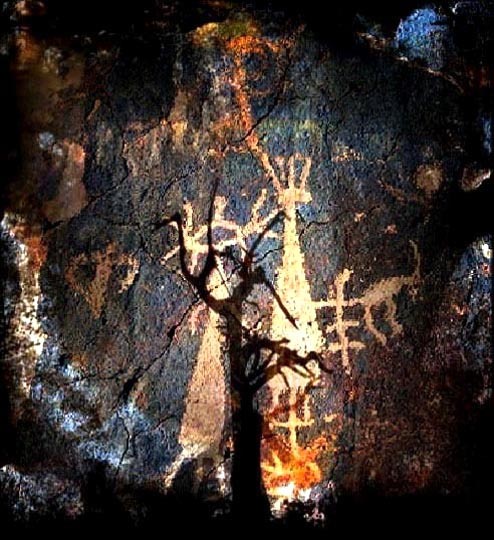By mid-afternoon, the ocean's blue lips are dappled with sunlight, while a gauzy gray curtain continues to veil the mountains. There's a myth that Padmasambava, who introduced Buddhism into Tibet during the 8th Century, secreted in caves scriptures, images and ritual objects, called termas, to be retrieved at appropriate times. Likewise, in these mountains of Southern California, the Chumash are said to have sacred sites where glyphs are hidden from casual sight.
In
2007, the poet Clayton Eshleman, who offered guided
tours of
the Paleolithic caves in France, wrote: "I think,
Joel, that you must visit the caves. Maybe not think of it as travel
but as arrow-work into the heart of What You Arise From." A
point well taken; yet declined, as I find places that have become
destinations of spiritual tourism hollowed out and depressed.
At best, I'd see shadows and reflections
of that
from which our consciousness emerged, and to where it would
lead us.
The
Paleolithic caves were important stations on our journey toward farther
casts of creativity. However, in Africa, more than 100,000
years earlier, using red ochre powder for decorative or ceremonial
purposes, we were
already honing the hues
of a numinous imagination.
Back then, all human cognitive receptors would have responded alike to the same hierography. Unlike now, when "the Tibetan Buddhist, for example,
is incapable of having an experience of (Meister) Eckhart's Godhead, or the Advaita Vedantist's Brahman, or the Kabbalist's Ein Sof because the cognitive schemas associated with his or her religious tradition simply preclude the possibility of having recourse to such metaphysical entities."
Everything's exposed here, yet not seen. How different we are from ourselves!
